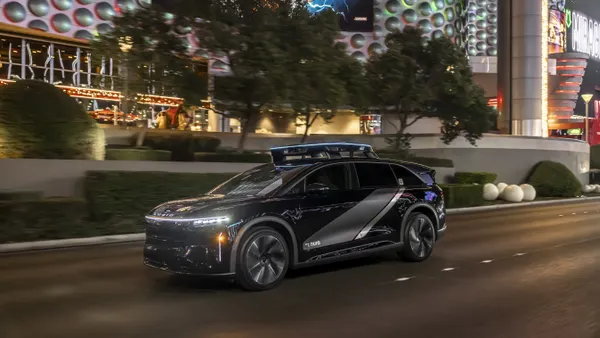Dive Brief:
- Volkswagen (VW) has announced that it will start building electric vehicles (EV) in the U.S. by 2023, according to The Wall Street Journal and others.
- Although no final decision has been made on where the vehicles will be made, VW likely will choose its only U.S.-based plant — in Chattanooga, TN — rather than building a new manufacturing facility somewhere else.
- VW is new to the electric vehicles market and plans to launch its first models by 2020. One or two of those models will be manufactured at the U.S. plant.
Dive Insight:
Even though VW took a hit after its 2015 emissions reporting scandal, its car sales are up this year. It has partially counteracted the billions of dollars in penalties it has paid out thus far with layoffs and through attrition. Despite two years of trouble in the wake of the emissions scandal, VW reportedly has remained committed to expanding the Chattanooga plant and adding more jobs there. Adding an electric vehicle sector at that location would be one way of fulfilling the expansion promises.
VW's first electric vehicles will be built in eastern Germany, and it's also examining the possibility of building some in China. The popular brand will create stiff competition for U.S.-based EV manufacturers, such as Tesla, once it establishes its American EV production facility.
VW appears to be trying to compensate for its lack of speed in entering the EV market through innovation. Of the new electric vehicles it intends to launch in 2020, at least one will be an SUV. Most competitors currently only offer hybrid, instead of fully electric, SUV models. VW also has announced that it will offer an all-electric version of its iconic minibus that gained popularity in the 1960s.
Additionally, the company announced this week that its subsidiary MOIA will launch an all-electric van designed to disrupt the ride-hailing market. The vehicle will make a service deubt in Hamburg in 2018, according to TechCrunch.
The VW CEO has noted that by the time the company's EVs become available, owning an electric vehicle should be more reasonable for consumers because of growth in EV charging infrastructure. He has also taken thinly-veiled jabs at Tesla's pricey vehicles, saying that EVs should be accessible and affordable to all consumers, not just the wealthy.










